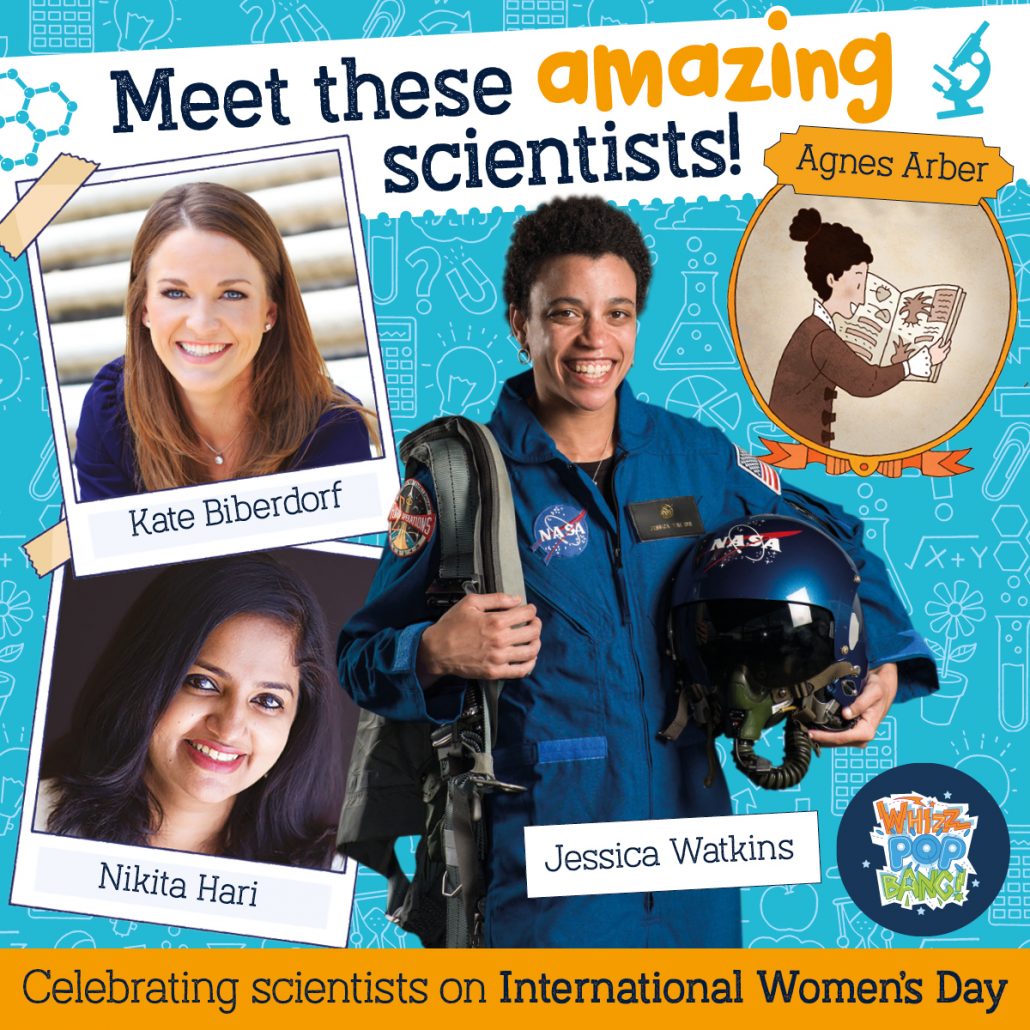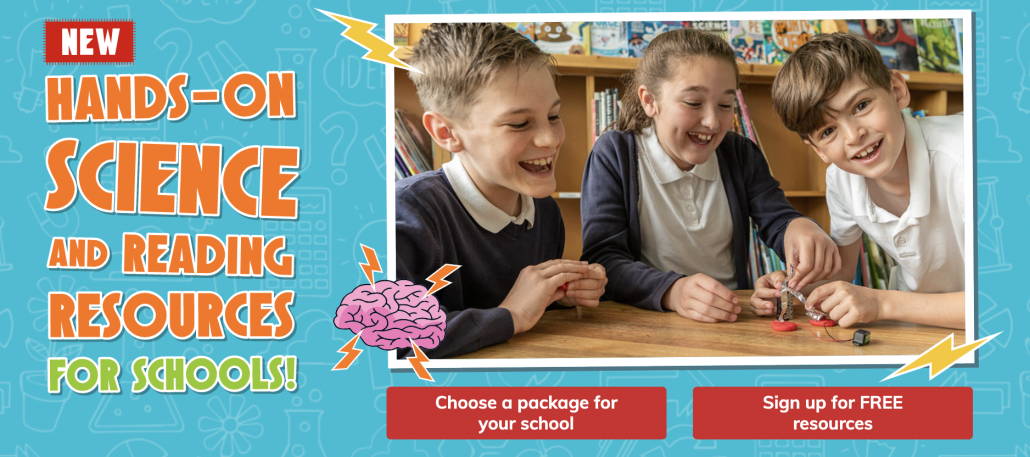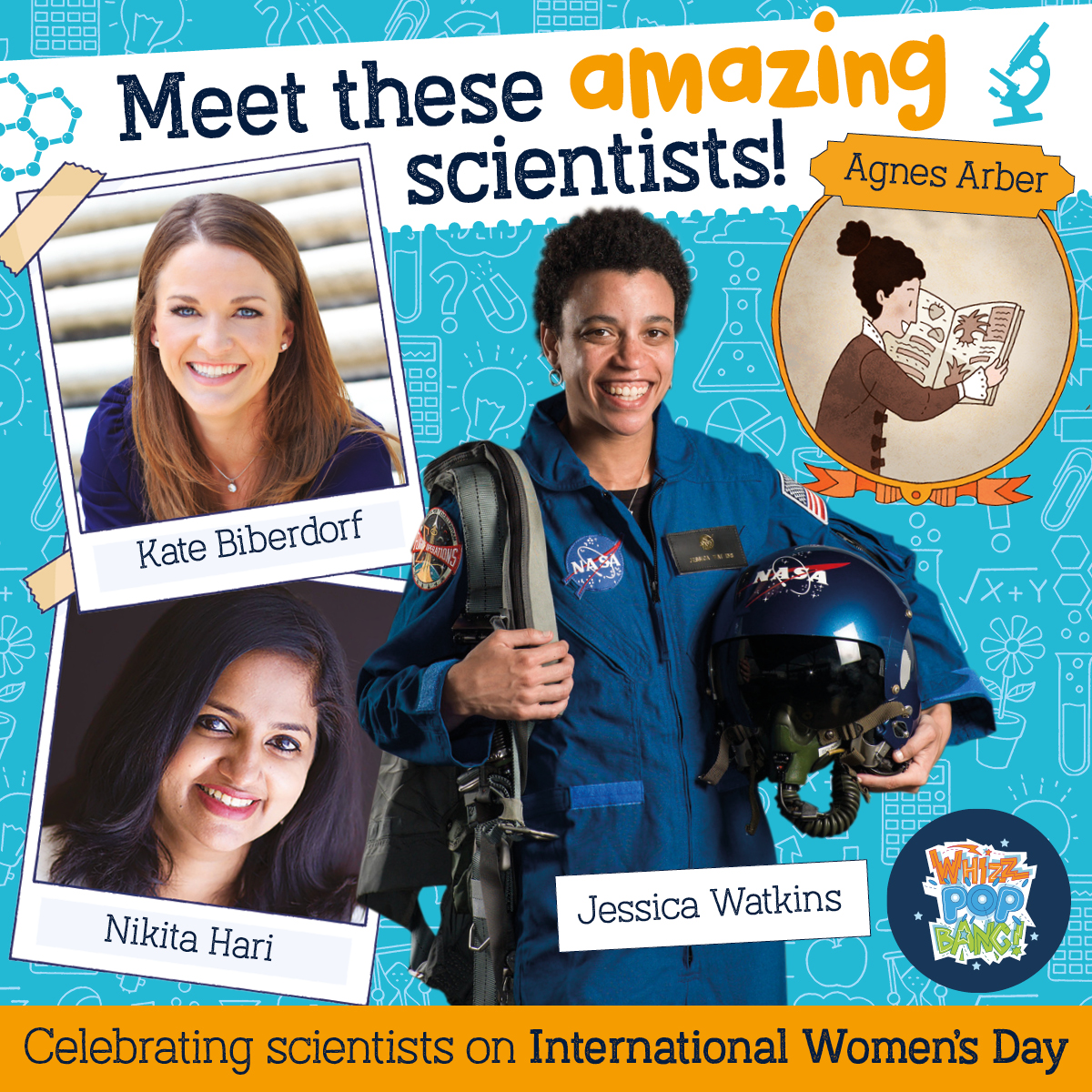To celebrate International Women’s Day on Monday 8th March, we’ve shared some stories of some inspirational scientists. You’ll find more fantastic free reading resources, as well as loads of home science activities and experiments, right here!
Are you a primary teacher looking for inspiring scientist role models? Keep scrolling to find reading comprehensions about these incredible women!

Find out which of these scientists are trained to travel to the Moon, who started their career aged 13 and who blows things up for a living!
Jessica Watkins, NASA Astronaut
Nikita Hari, Electrical Engineer
Agnes Arber, Plant Scientist
Kate Biberdorf, Explosions Engineer
Primary school reading comprehension packs with question and answer sheets:
Jessica Watkins, NASA Astronaut
Read about fully trained astronaut Jessica Watkins who hopes to soon be able to fly to the Moon as part of the Artemis missions to the Moon! Includes the feature to print or to read on a tablet, as well as comprehension question and answer sheets. Ideal for Year 5 / P6.
Nikita Hari, Electrical Engineer
Find out what it’s like to be an electrical engineering whizz with this inspirational interview with Nikita Hari. Includes the feature to print or to read on a tablet, as well as comprehension question and answer sheet. Ideal for Year 6 / P7
Agnes Arber, Plant Scientist
Read about sensational scientist Agnes Arber, whose career as a plant scientist started when she was just 13! Includes the feature to print or to read on a tablet, as well as comprehension question and answer sheets. Ideal for Year 3 / P4
Kate Biberdorf, Explosions Engineer
Find out why Kate Biberdorf loves to blow things up to inspire her students! Includes the feature to print or to read on a tablet, as well as comprehension question and answer sheets. Ideal for Year 4 / P3
If you think these could be useful in your classroom, you’ll love Whizz Pop Bang’s amazing science and reading resources for schools! Find out more here.

- Resources linked to the science and reading curricula
- A monthly magazine for broader understanding of key topics
- Written by expert teachers and science writers
- Gives teachers the confidence to deliver accurate science lessons
- Lots of quick and easy hands-on experiments!

